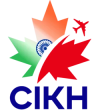As remote work reshapes global employment, Canada’s immigration system is evolving to reflect these new realities. In particular, Express Entry draws are now more adaptable, offering opportunities for skilled workers who are employed remotely for foreign companies while living and working in Canada.
If you’re working remotely for a foreign employer from within Canada and also hold a Canadian job, you may be eligible to claim CRS (Comprehensive Ranking System) points for both. However, the process comes with important requirements and limitations, as clarified by Immigration, Refugees and Citizenship Canada (IRCC).
This guide unpacks the latest IRCC guidance, focusing on how remote work can contribute to your CRS score—and ultimately improve your chances of receiving an Invitation to Apply (ITA) for permanent residency.
Book Your Consultation for Canadian Immigration
Why CRS Points Matter in Express Entry
The Express Entry system is Canada’s main pathway for skilled immigration. It manages applications for:
- Federal Skilled Worker Program (FSWP)
- Federal Skilled Trades Program (FSTP)
- Canadian Experience Class (CEC)
The CRS score determines your ranking and eligibility for an ITA. Points are awarded for age, education, language proficiency, and work experience—both Canadian and foreign.
Remote Work: A New Avenue for CRS Points
According to IRCC, if you live in Canada with a valid work permit and are working full-time in a skilled occupation (TEER 0, 1, 2, or 3), you may also claim points for a remote job with a foreign employer, even if both jobs are simultaneous.
Key takeaways:
- Remote work for a foreign company counts as foreign experience, even if performed from Canada.
- You can claim points for both jobs—provided each qualifies as full-time (30+ hours/week) and falls under a skilled NOC category.
- However, for eligibility purposes, IRCC doesn’t count more than 30 hours per week, even if you’re working more through multiple roles.
How to Claim Both Canadian and Foreign Experience
You can potentially earn:
- Up to 80 CRS core points for Canadian work experience (3+ years).
- Up to 50 skill transferability points for foreign work experience (3+ years + strong language skills or Canadian education).
Example:
A software developer in Toronto works:
- 40 hours/week for a Canadian employer (NOC TEER 1)
- 30 hours/week remotely for a U.S. startup
They may qualify for:
- Canadian CRS points for the local job
- Skill transferability points for the foreign remote role
Note: Only 30 hours/week max counts toward the 1-year work experience requirement.
What Are Skill Transferability Points?
These points reward combinations of skills, helping boost your Express Entry profile:
- Foreign Work Experience + High Language Scores (CLB 7+): Up to 50 points
- Foreign + Canadian Work Experience: Up to 50 points
Remote foreign work—if properly documented—can qualify for these bonuses.
Requirements for Claiming Remote Foreign Work
To count remote work as foreign experience, you must meet these conditions:
- Occupation Type: Both roles must be in NOC TEER 0–3.
- Full-Time Hours: Each job must be 30+ hours/week to qualify for full-time points.
- Valid Canadian Work Permit: You must be legally authorized to work in Canada.
- Remote Work Arrangement: The foreign job must be performed remotely for a non-Canadian employer.
- Express Entry Profile: List the employer’s actual country (not Canada).
- Supporting Documents:
- Job contracts and remote work terms
- Foreign pay stubs or bank records
- Employer letters confirming duties, hours, and remote status
- Proof you are physically living in Canada (e.g., lease, utility bills)
Case-by-Case Assessment: What It Means
IRCC’s guidance is not a formal policy, but a clarification. Applications are reviewed individually, considering:
- Nature of the work arrangement
- Employer location and business presence
- Credibility and completeness of supporting documents
For example, if your foreign employer has Canadian ties or your job duties overlap with your Canadian role, IRCC may question whether it truly qualifies as foreign experience.
Scenarios
1. Dual Full-Time Employment
Maria, a marketing manager in Vancouver:
- 35 hours/week for a Canadian firm
- 30 hours/week remotely for a U.K. company
Outcome:
- Full CRS points for Canadian work
- Skill transferability points for foreign job
- CRS boost: Up to 120 points
2. Part-Time Remote Work
Priya, a financial analyst:
- 40 hours/week in Canada
- 20 hours/week for an Indian firm
Outcome:
- Full CRS for Canadian job
- Partial points for foreign job due to part-time hours
Tips to Maximize Your CRS Score
- Improve Language Proficiency: Higher CLB = more points
- Keep Thorough Records: Contracts, employer letters, pay statements, proof of remote setup
- Use the Correct NOC Codes: Ensure both jobs match eligible TEER levels
- Monitor Draw Scores: Track CRS cut-offs on the IRCC website
- Consult Experts: A licensed consultant can help ensure accuracy and compliance
Risks and Challenges
- Heavy Documentation: Missing proof can delay or sink your application
- System Limitations: Express Entry profiles don’t explicitly capture remote work—clarify details after receiving an ITA
- Discretionary Decisions: Final call rests with the immigration officer
- Tax and Legal Concerns: Foreign income earned in Canada may raise tax issues—consult an accountant
Final Thoughts
Canada’s evolving stance on remote work provides a unique opportunity to boost your CRS score and strengthen your Express Entry profile. But the key to success lies in thorough preparation and proper documentation.
If you’re working remotely for a foreign employer while living in Canada, now is the time to act. Review your situation, collect proof, and seek expert advice to make the most of your Express Entry application.
Your remote job could be your ticket to permanent residency in Canada.





